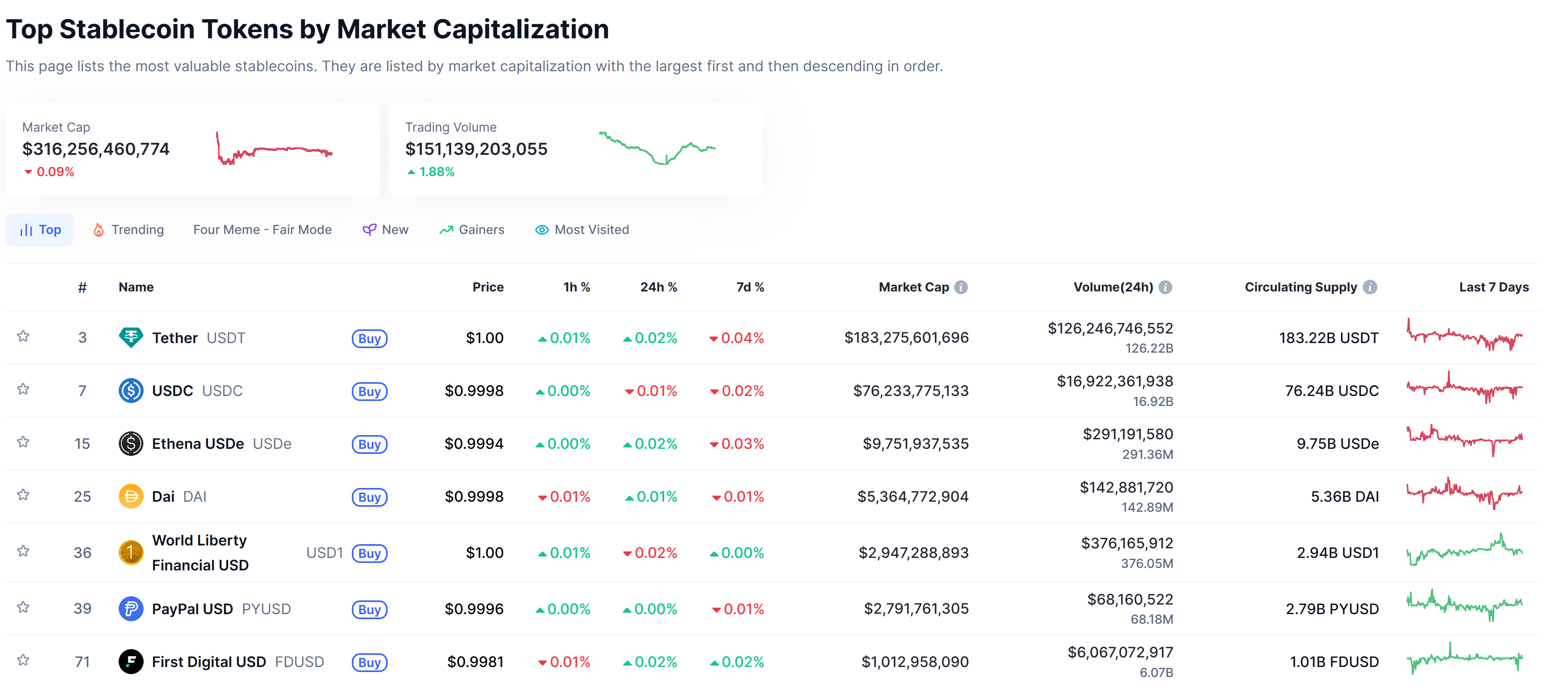
Circle’s Arc has gained notable traction with over one hundred prominent banks and fintech firms, including BlackRock, Goldman Sachs, Visa, and Mastercard participating in its public testnet.
Details on KRW1
BDACS, a South Korean crypto custodian, is set to launch a stablecoin, ‘KRW1’, backed by the won, utilizing Circle’s newly unveiled blockchain, Arc. This initiative, borne out of a memorandum of understanding (MOU) with Circle, aims to foster an ‘organic cooperative framework’ as noted by a report from Yonhap News Agency on Wednesday.
“This collaboration is a significant leap for Korea’s innovation to reach the global arena,” stated Ryu Hong-yeol, CEO of BDACS. “By integrating KRW1 on Circle’s Arc, we are establishing a pathway for Korean enterprises to engage in the global stablecoin ecosystem.”
BDACS registered the KRW1 trademark in December 2023, paving the way for the stablecoin’s development.
 Top stablecoins by market cap. Source: CoinMarketCap
Top stablecoins by market cap. Source: CoinMarketCap
Related: South Korea enhances crypto seizures towards cold wallets
Arc Testnet Launch
The announcement follows closely on the heels of Circle’s Arc going live with its public testnet, marketed as an ‘Economic Operating System for the internet’, linking global financial systems directly on-chain. Over 100 global enterprises, including BlackRock and Mastercard, have already joined the network.
The network boasts reliable US dollar-based transaction fees and near-instant transaction finality, enabling the convenient use of USDC and other fiat-pegged assets. Moreover, stablecoin providers from countries like Japan, Brazil, Mexico, and the Philippines are testing their local tokens on Arc, positioning Korea’s KRW1 to join this array.
Related: Crypto payments firm RedotPay celebrates unicorn status with $47M funding
Critique of Bank-Led Stablecoin Strategy
Sangmin Seo, chair of the Kaia DLT Foundation, criticized the Bank of Korea’s (BOK) directive for local banks to oversee the introduction of won-backed stablecoins, labeling it as ‘illogical’. The BOK contended that the regulatory structure around banks would alleviate risks associated with cryptocurrency adoption, proposing the creation of a joint policy body to monitor issuers and issuance quantities. However, Seo argued for a system with defined rules applicable to all issuers who meet specific regulatory benchmarks.
Magazine: Bitcoin OG Kyle Chassé on the edge of a YouTube ban


